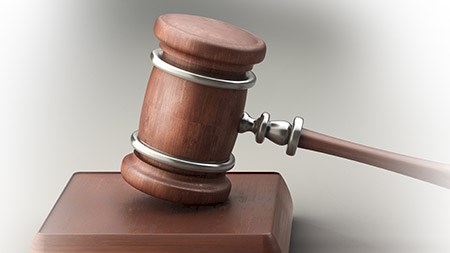Buying a property at an auction sale does not always mean that you are going to get a bargain. It is therefore important that you do your homework before purchasing.
South Africans are not used to buying and selling residential properties using auction sales. A property that is being auctioned usually conjures up pictures in the minds of people of liquidations and insolvencies. In countries like Australia, the largest percentage of residential property sales takes place through auctions.
Buying a property at an auction sale does not mean that you are going to get a bargain. Properties sold at auction are not always forced sales. It is therefore important that you do your homework before purchasing.
What is the difference between a Property in Possession and a Sale in Execution?
There is generally confusion between a sale in execution and a repossessed property. A property becomes a repossessed property when a home owner is in substantial arrears with his repayment on his home loan, the bank takes legal steps to serve the owner with a summons, take judgment and eventually attach the property. If during these stages the owner is still in arrears, the bank instructs a sheriff of the court to sell the property at a public auction. The bank is entitled to attend the sale and to ‘buy the property back’ if the bidding amounts being bid at the sale are not sufficiently high enough to cover the amount outstanding to the bank. A property becomes a Property in Possession (PIP) when the bank ‘buys the property back’ at a sale in execution (public auction).
If you wish to purchase a property at this type of auction there are certain factors to consider:
Prospective buyers need to register before the auction and pay a refundable deposit;
If your bid is successful you will be required to pay a deposit normally equal to 10% of the purchase price as well as the sheriff’s commission on the fall of the hammer;
The balance of the purchase price must be guaranteed within 14 to 30 days;
The purchaser is responsible for outstanding rates and/or levies;
The purchaser is normally responsible for the eviction of any occupiers.
Advantages of buying a property on auction:
The buyer may feel more at ease knowing that the bidders who lost to his bid are prepared to pay almost the same amount for the property. The buyer can feel assured that he did not overpay for the property.
An auction eliminates lengthy negotiation periods.
The buyer knows that the seller is certain that he wants to sell, and is not just simply ‘testing the market’.
In terms of an auction agreement, the seller is contractually obligated to transfer title of the property to the highest bidder in an absolute auction, and to the highest bidder that meets or exceeds the reserve price in an auction with reserve.
Tips for buyers:
Go to a couple of property auctions just to observe, before you decide to buy on auction. This will give you the necessary knowledge on more-or-less how it works, and also the confidence that you will not feel intimidated by the fast moving ‘action’ associated with auctions.
Go and view the property before the sale. Assess if there are any maintenance problems that the property has. This may affect the bid that you are prepared to make at the auction sale. The other advantage of pre-viewing the property is that you may be able to conclude a contract of sale with the seller before the auction takes place. This will also depend upon the agreement that the seller has with the auctioneer.
Try to determine the market value of the property before it goes on auction. This is important as it will assist you to assess whether or not the price that you bid at the auction is reasonable or not. You do not want to overpay.
You must check if the seller owes any money to the council for rates and taxes and service charges. One of the terms and conditions of the sale may be that the buyer is responsible for any of these outstanding amounts.
Pre-arrange your finance. You will be required to pay a deposit at the auction sale and will then have to make arrangements to settle the balance of the purchase price with the auctioneer.
Auctioneers fees are also payable on the day of the auction. This is usually a percentage of the value of the sale. Make sure that you know what all the extra costs are and that you are prepared.
Ask the auctioneer to see the contract that you will be required to sign, and read through it thoroughly. If you are unclear about anything, rather ask the auctioneer to explain the terms or consult an attorney before you attend the auction.
You must get to the auction sale before it commences. The auctioneer will read out the terms and conditions of the sale in public before the auction begins.
Advantages of selling your property on auction:
Auction sales are conducted in an open forum, which allows both motivated buyers and the seller to watch the property’s true market value emerge as the bidding process progresses.
You are sometimes able to set a price and have buyers negotiate downwards, rather than the conventional upward bids.
No commission is paid by the seller. The buyer will pay a market related, usually between 5-10%, auctioneers commission.
Auction sale do not generally accommodate suspensive condition. The property is sold ‘as it stands’ or ‘voetstoots’ with no bond clause.
Bidders at an auction are generally qualified (financially) and ready to buy.
A seller may receive a higher price than the initial asking price.
Auctions take the seller out of the negotiating process, unless the minimum asking price (reserve) is not achieved on the auction day.
Tips for Sellers:
Find an auctioneer who has experience in selling residential property on auction. You do not want to place your property in someone’s hands that has no experience in the field of auctioneering. Check the newspaper as a starting point. Look out for qualifications like: Graduate of South African College of Auctioneering; Registered with the South African Institute of Auctioneers; Registered with the South African Property Valuers Profession; Member of the Institute of Valuers;
Ask the auctioneer to explain the different types of auctions available to sell property and select the type of auction that best suits the property and your needs. For example:
At an Absolute Auction the property is sold to the highest bidder with no reserve i.e. you did not put a minimum acceptable price on the property, as the seller. Absolute auctions are attractive to qualified prospective buyers. At an Auction with Reserve a minimum selling price is agreed upon with the seller before the auction date. Should the price be exceeded the property is sold to the highest bidder. Should the highest bid not reach the minimum reserve price, the last and highest bid is temporarily taken, subject to a confirmation period which is set in order to discuss the bid with the seller.
Make sure that the auction company that you choose will undergo an aggressive marketing and advertising campaign for your property, geared towards prospective buyers.
Establish whether the auctioneer already has a list of qualified buyers.
Try and determine the market value of your property before it goes on auction. This is important as it will assist you to assess whether or not the price achieved at auction is reasonable or not.
It is generally recommended to set a minimum price which is in line with the market value of the property and with the market’s current conditions.
You need to be realistic in setting a price and in your expectations.
Ensure that your property is ready for sale. There are auctioneers who will be able to assist you to get your property ready for auction. The desirability of the property being sold in terms of location, condition and surrounding properties is important, not only for auction properties, but for any property sale. Paint your house and fix any outstanding maintenance problems.
The auctioneer should be proficient in terms of educating prospective buyers on the property before the auction, so that the only issue that remains is price.
Ask your auctioneer to explain all your contractual obligations in terms of the Auction Mandate and the Sale Agreement.
This article originally appeared in Property Power 11th Edition Magazine. To order your copy at the discounted price of R120 click here.


